Drinking water to lose weight
Although no one is guaranteeing that drinking water before bed (or at any other time of the day) would make you wake up lighter, there is evidence to support this association: Since 60% of your body is made up of water, the transparent, calorie-free liquid is involved in almost all internal processes. According to study, your body functions more effectively the more hydrated you are when performing tasks like thinking and burning fat.
Water, according to science, may aid with weight loss in a number of different ways. It could help you lose weight by decreasing your hunger, increasing your metabolism, and making exercise simpler and more effective.
Numerous actions, attitudes, and dispositions can influence your body weight, but if you want to lose weight gradually and moderately, starting by making sure you're well-hydrated may be a smart idea.
There are seven reasons why consuming more water may aid in weight loss:
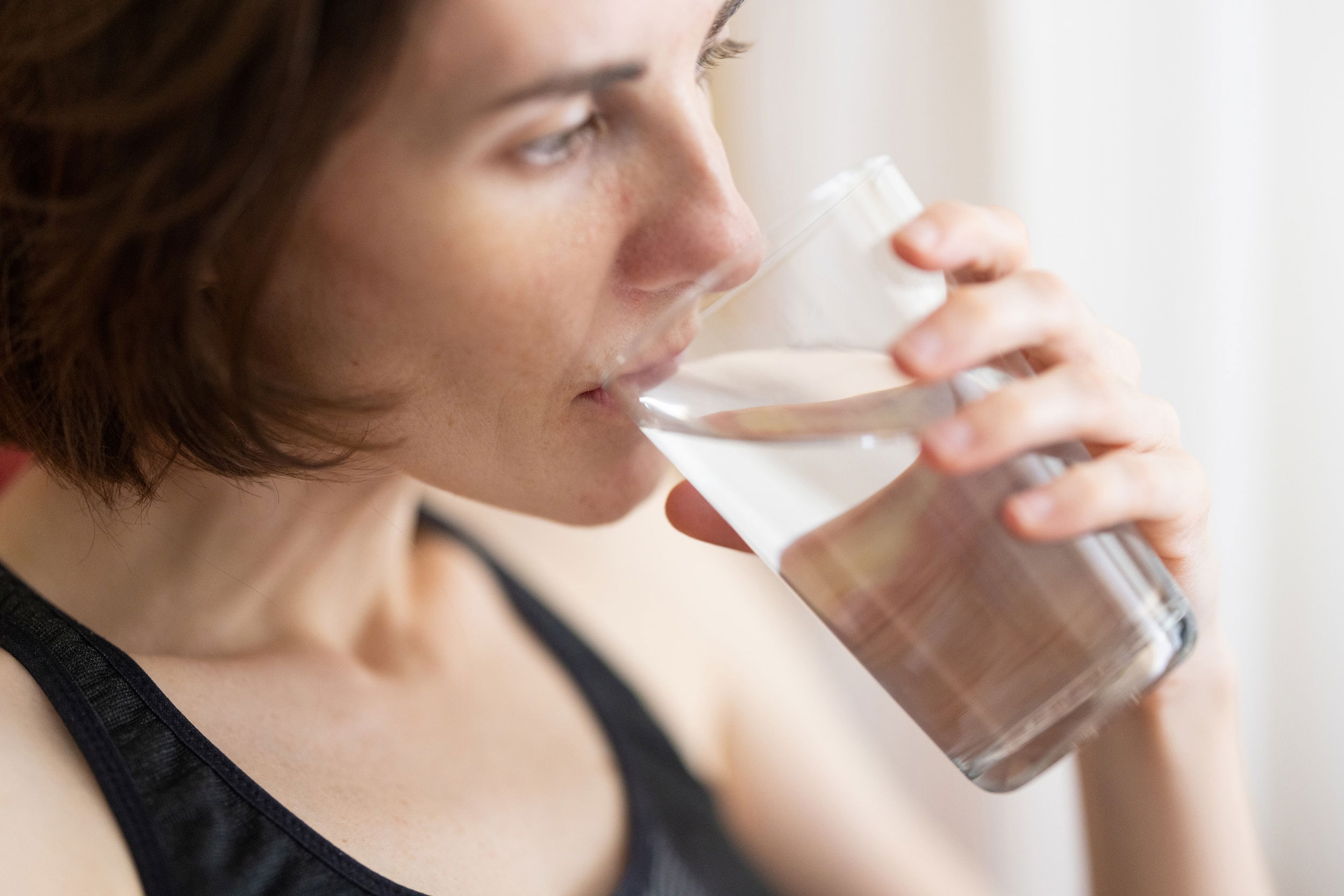
1. Drinking water could naturally make you feel full
Your initial reaction may be to look for food when you become aware that you are hungry. But food may not be the solution. The brain frequently confuses thirst, which is brought on by moderate dehydration, with hunger, according to internist and board-certified medical nutrition specialist Melina Jampolis. "You may be able to decrease appetite by drinking water if you are, in fact, low in water not calories".
Additionally, water can help you feel fuller faster since it moves through your system quickly and stretches your stomach. This signals fullness to your brain, according to Jampolis.
Although the effects are transient, Elizabeth Huggins, a registered dietitian nutritionist at Hilton Head Health, adds that "consuming water shortly before eating may help decrease food intake." The hypothesis is supported by research, which found that people who drank two glasses of water right before a meal consumed 22% less food than those who didn't. Your stomach should feel full after about two cups, according to the experts.
2. Water may help to speed up your metabolism
According to Huggins, it's possible that drinking water increases your body's metabolism and calorie expenditure, which eventually aids in weight management.
In an eight-week research, 50 overweight girls lost weight and experienced decreases in their body mass index and body composition scores when they drank roughly two cups of water 30 minutes before breakfast, lunch, and supper without making any other dietary modifications.
It isn't magic: Especially when it's cold, drinking water seems to boost the body's generation of heat, or thermogenesis. The process of bringing the fluid to body temperature requires the body to expend energy, and the more energy your body expends, the faster your metabolism—the mechanism by which your body turns food and liquids into energy—operates. Specifically, a small 2003 study published in the Journal of Clinical Endocrinology & Metabolism found that consuming around two cups of 71°F water increased the metabolic rates of 14 healthy adults by 30% on average.
But remember that the effects of thermogenesis generally won't produce significant calorie deficits that lead to weight reduction before you fill your glass and pile your plate. Huggins asserts that being hydrated is crucial even if the benefit is minimal and that there aren't many drawbacks to consuming extra water.
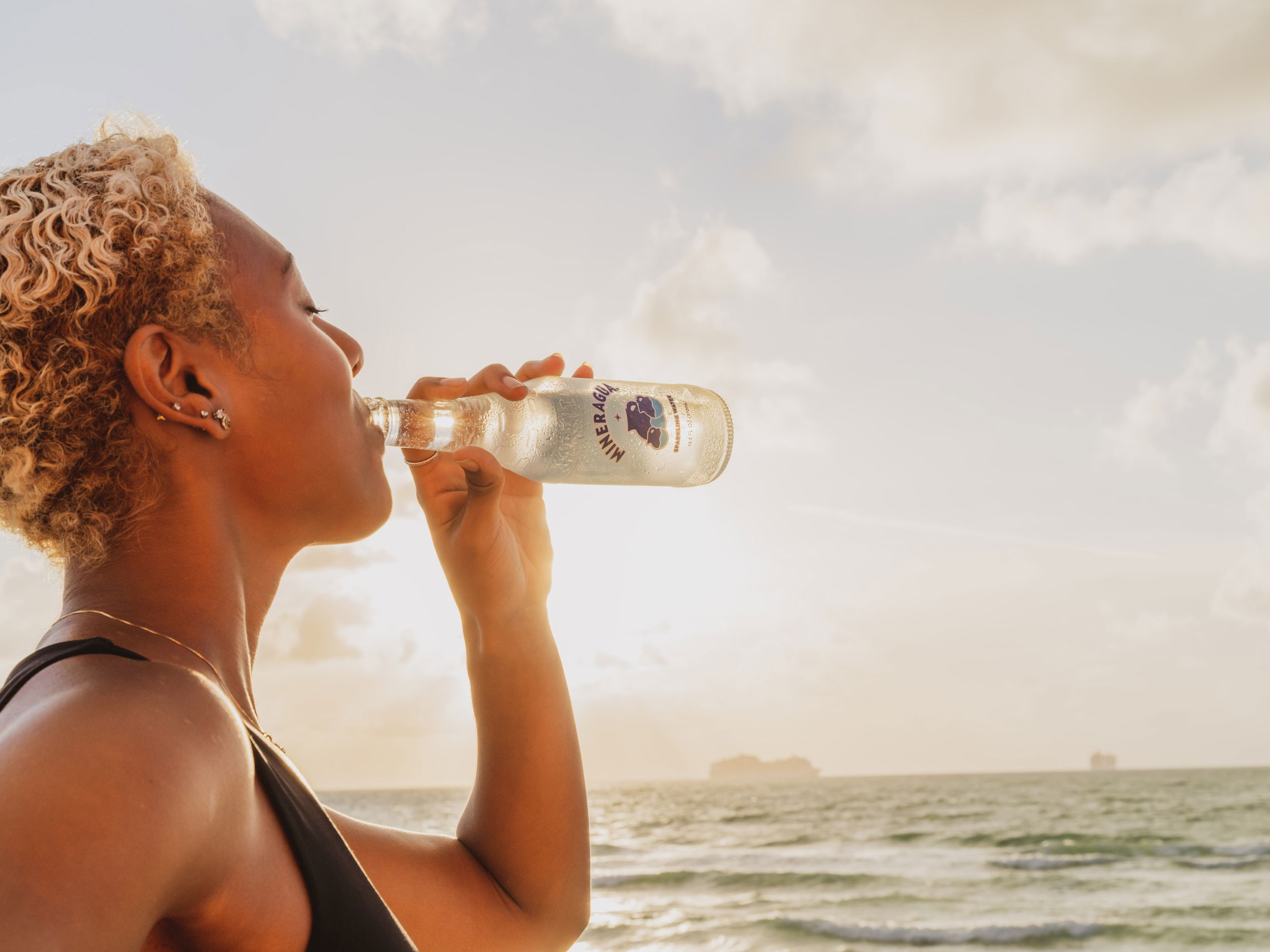
3. Water consumption may help you consume less calories from liquids overall
Since water has no calories, choosing it to fill your glass instead of higher calorie beverages like juice, soda, or sweetened tea or coffee will help you consume less liquid calories overall. Huggins notes that drinking water instead of the typical 20-ounce vending machine soft drink will save you 250 calories.
The calorie savings can mount up quickly, she says, as long as you don't "make up" for those calories by leaving the coffee shop with a muffin and water rather than your typical flavoured latte.
It's also noteworthy to note that, despite the fact that diet soda contains no calories, switching to water may help some people lose weight. In a 2015 study published in The American Journal of Clinical Nutrition, overweight and obese women who switched from diet beverages to water after their main meal saw higher weight loss throughout a weight-loss programme. The extra weight reduction in those who drank water may have resulted from ingesting less calories and carbohydrates, but more research is required, the researchers said. All things considered, many diet drinks still hydrate and cut calories when substituted for sugary drinks, thus they might aid in weight loss for certain people.
4. Water is beneficial when exercising
When exercising, the body needs water because it dissolves and distributes electrolytes, which are minerals like sodium, potassium, and magnesium that cause muscular contractions that are necessary for movement, according to Jampolis. Cramps can result from an electrolyte imbalance, but dehydration has other effects as well.
"When muscle cells are dehydrated, they break down protein (aka muscle) more quickly and build muscle more slowly, so your workouts are much less effective," she explains.
Additionally, during activity, the body loses fluids more quickly because the heat it produces is transferred to the skin's surface, where perspiration and subsequent evaporation (a cooling process) aid in maintaining body temperature.
In order to maximize the enlargement of blood vessels at the skin's surface to release heat, Jampolis advises maintaining a healthy blood volume.
"If your body can't dump excess heat via sweating, you're setting yourself up for heat exhaustion or worse," she explains. "Being adequately hydrated can improve your workouts by decreasing fatigue, which can allow you to work out longer and burn more calories." Because of this, it's crucial to stay hydrated before, during, and after your workout—not just when you start to feel thirsty.
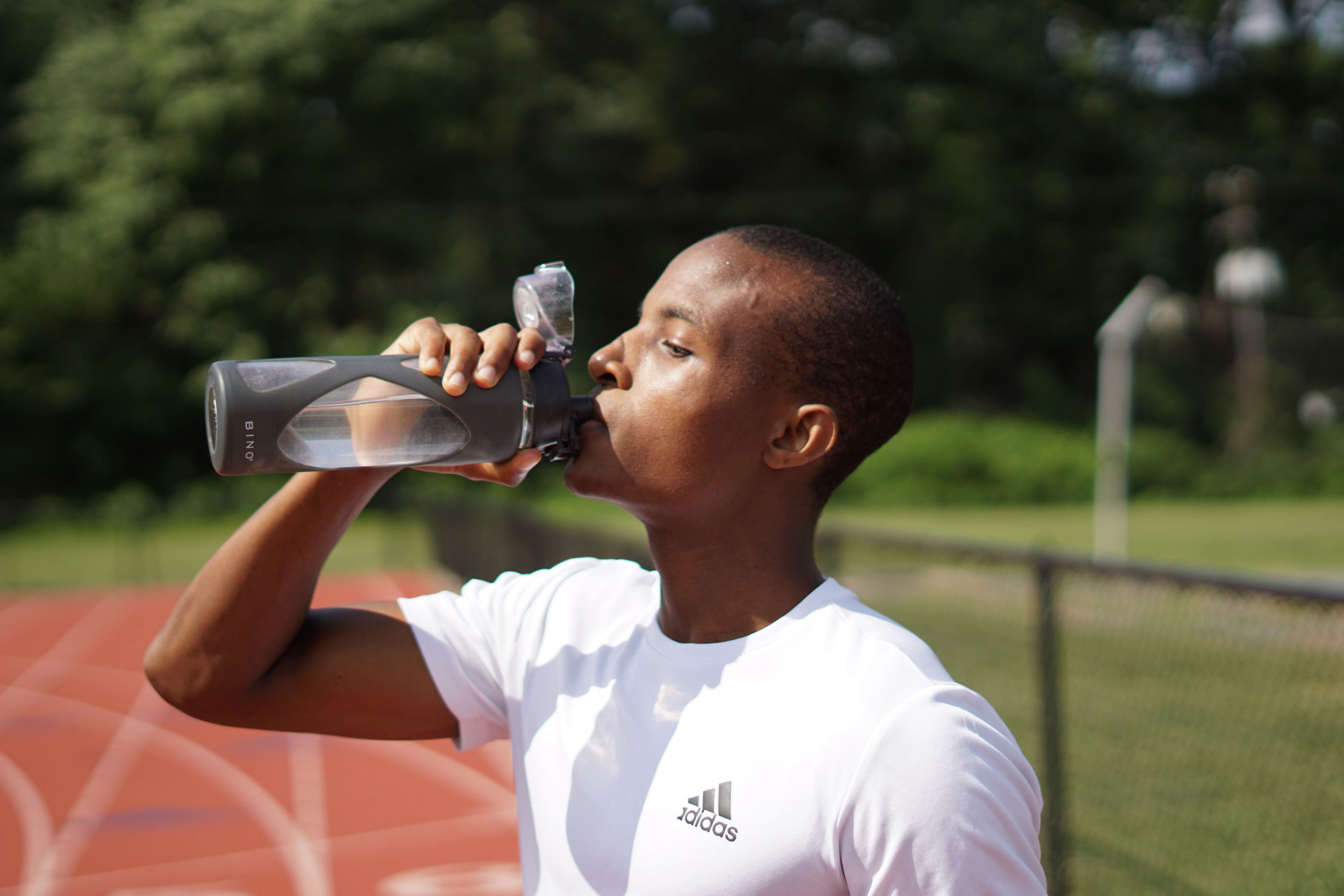
5. Water aids in waste removal from the body
Because water makes up a major portion of urine and because water keeps stools soft, drinking water makes it easier to produce urine and move faeces. That is to say, the more hydrated you are, the easier it will be for your body to process things and the less likely it would be that you will experience constipation and bloating.
According to Huggins, regular hydration also encourages kidney function, clears dangerous germs from the urinary tract, and shields against kidney stones, which can develop with more concentrated urine.
6. Water helps the body burn fat
According to a 2016 mini-review of animal studies published in Frontiers in Nutrition, increasing your water consumption may boost lipolysis, the procedure by which the body burns fat for energy. Although the exact process is unknown, mild dehydration reduces lipolysis, which may be brought on by hormonal changes, according to Jampolis, who was not involved in the review. A different hypothesis put out in animal research is that water expands cell volume, which might be involved in the metabolism of fat. It has not yet been tested on humans, though.
7. Drinking water may boost motivation and lessen stress
Who makes healthy judgements when they are fatigued, lightheaded, or confused? These are some of the signs of dehydration. According to the 2016 mini-review's researcher, dehydration may also contribute to fatigue and diminished attentiveness. Dehydration boosts your body's production of cortisol, the stress hormone, according to another study that was written in the International Journal of Sports Medicine.
"These symptoms could affect your motivation to exercise, cook at home, and make better food choices", Jampolis explains.
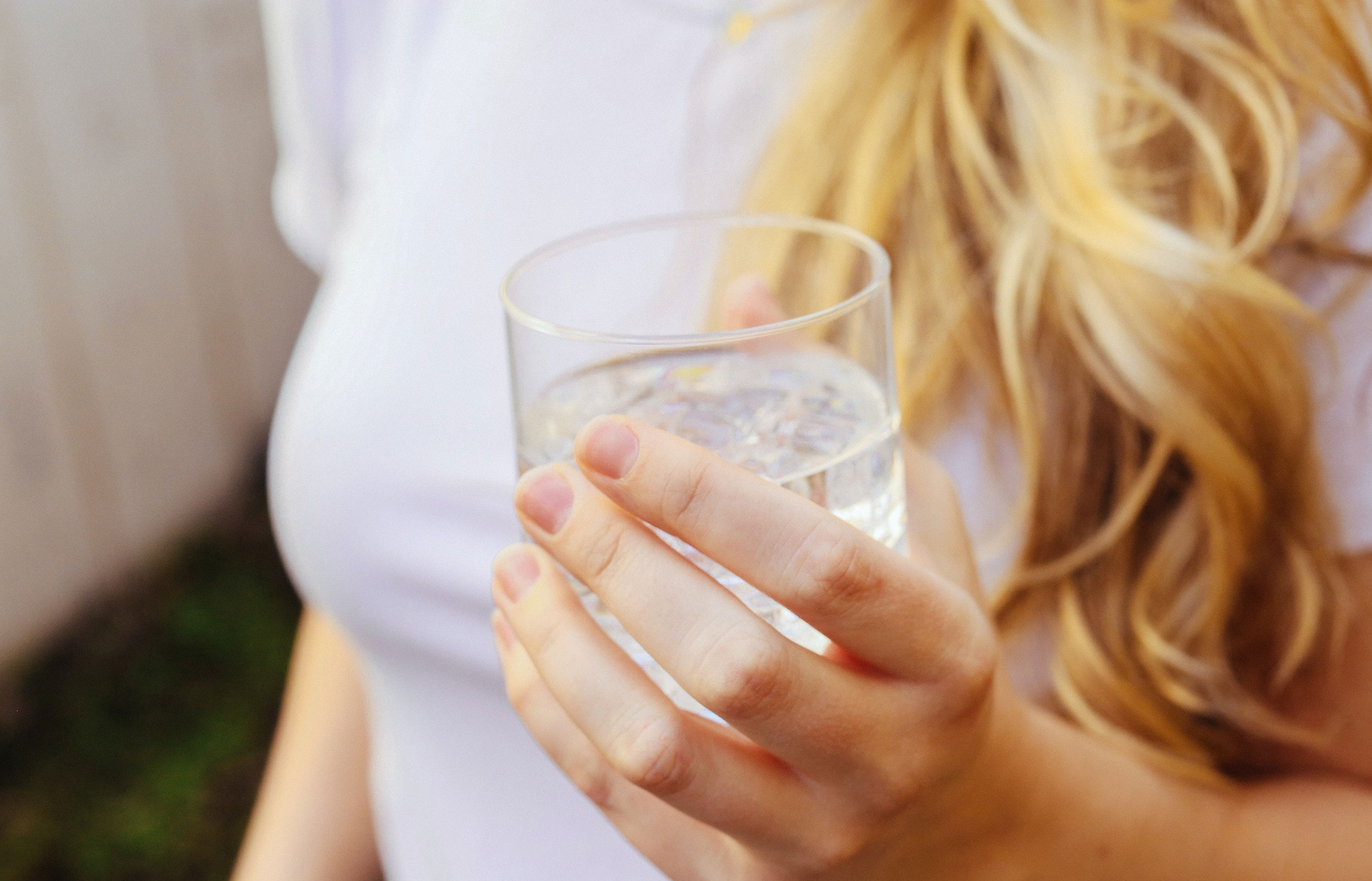
Other advantages of drinking water for health:
Remember that water makes up 60% of your body, thus staying properly hydrated affects more bodily functions than just weight reduction.
Here are a few further instances of what else water is capable of:
Your skin stays brilliant thanks to water
Although scientists are still unsure of the precise mechanism, it stands to reason that water would be crucial for skin health as well given its significance in the bulk of body processes. Researchers found that increasing water intake would have the same effect on the skin as a topical moisturizer and could have a positive impact on normal skin physiology, including elasticity (the loss of which is associated with sagging and wrinkles).
Your brainpower is enhanced by water
Your brain needs water to function at its best, just like the rest of your body, as water makes up 73% of the brain. According to studies reported in the Journal of the American College of Nutrition, even mild levels of dehydration (as little as 2% water loss) affect your ability to do tasks that call for attention, cognitive functioning, physical movement, and immediate memory skills.
Blood pressure is controlled by water
"Water plays a major role in keeping the blood flowing effectively," Huggins explains. Dehydration causes a change in the plasma/blood cell ratio that causes the blood to become thicker and more viscous. This increases the strain on the heart by making it harder for blood to flow where it should.
Additionally, the brain releases a hormone that constricts blood vessels when your body's cells lack adequate water. This chemical can cause hypertension or high blood pressure, which in turn can increase your risk of stroke and heart disease. In order to maintain proper blood flow, staying hydrated prevents your blood vessels from contracting.
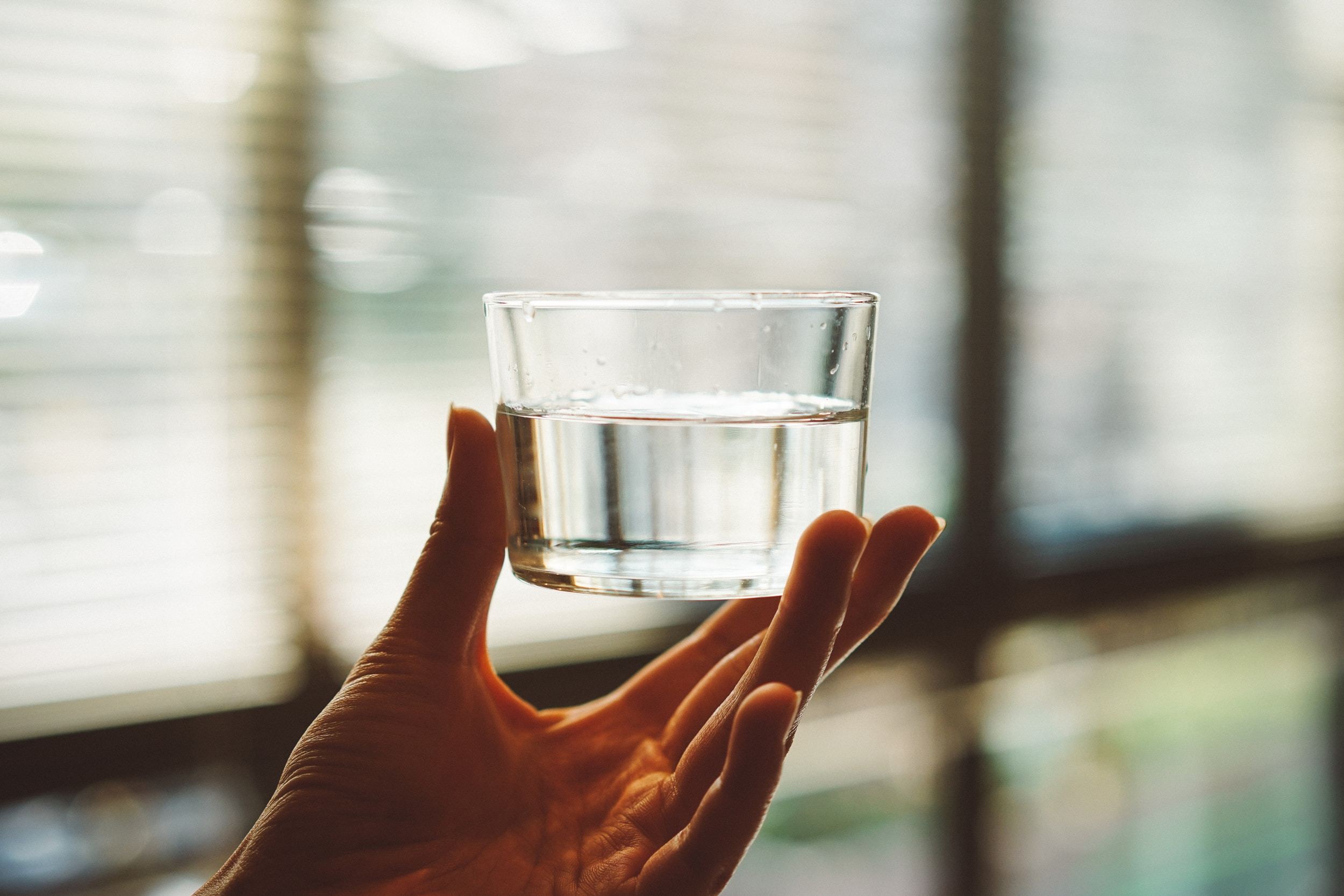
How much water ought you to consume?
The typical "eight 8-ounce glasses per day" rule may be familiar to you, but the truth is that the amount of water required varies significantly based on factors including age, gender, health, physical activity, inclination to perspire, and more. According to the National Academies of Sciences, Engineering, and Medicine, or NASEM, the majority of healthy people adequately achieve their daily water needs by following their thirst.
According to the Centers for Disease Control and Prevention, the typical American adult consumes approximately five glasses of water each day. The NASEM recommends that adults drink 125 ounces (about 15 and a half cups) of water per day for men and 91 ounces (or around 11 cups) per day for women. Water and other liquids provide for about 80% of the required fluid consumption, with foods high in water accounting for the remaining 20%.
After you urinate, check the pot to see if you've been drinking enough water. The color of your urine is the best indicator, according to Jampolis. You aren't drinking enough if it's dark yellow. To achieve light yellow.
The end result: weight reduction and water
The evidence from research does suggest that drinking water may aid in losing weight and promote other advantageous health effects. "Water is critical in every cellular activity of our body from head to toe," adds Huggins. "Staying hydrated helps the body run more efficiently and helps us feel better".
However, increasing your water intake shouldn't be your entire wellness strategy. "Drinking water is not going to have a huge weight loss effect, and without calorie restriction and/or exercise, just drinking water is not likely to lead to significant weight loss," Jampolis asserts. She reiterates the necessity of adopting a more thorough and sustainable strategy.